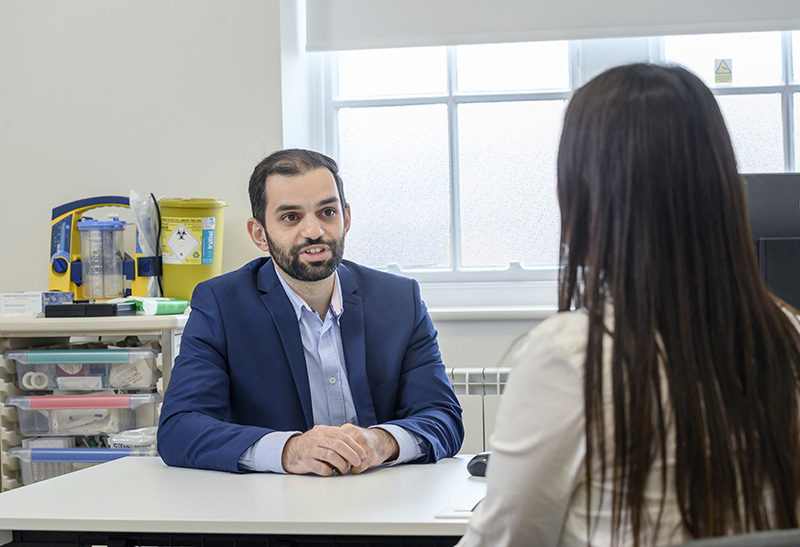Contents
Colorectal Cancer

What is Colorectal Cancer?
Colorectal cancer, also known as bowel cancer, is a type of cancer that affects the colon (large intestine) or rectum. It typically develops from benign growths called polyps, which can become cancerous over time if not removed. Early detection is key to successful treatment and recovery.
Common Symptoms
Symptoms may vary depending on the stage and location of the cancer. Key signs to be aware of include:
- Persistent changes in bowel habits (diarrhoea, constipation, or narrower stools)
- Blood in stool or rectal bleeding
- Unexplained weight loss
- Fatigue or weakness
- Abdominal discomfort or bloating
- A feeling that your bowel hasn’t emptied completely
It’s important to speak to a doctor if you experience any of these symptoms, especially if they persist for more than a few weeks.
Causes and Risk Factors
While anyone can develop colorectal cancer, certain factors increase risk:
- Age (most common in people over 50)
- A family history of colorectal cancer or polyps
- Inflammatory bowel diseases such as Crohn’s or ulcerative colitis
- Sedentary lifestyle or obesity
- A diet high in red or processed meats
- Smoking or excessive alcohol consumption
Diagnosis at The New Foscote Hospital
Early and accurate diagnosis is crucial. Our expert consultants may use a combination of:
- Imaging scans – such as MRI or CT to check cancer spread
- Colonoscopy – to inspect the colon and remove polyps
- CT colonography (virtual colonoscopy)
- Biopsy – if abnormal tissue is found
- Blood tests – including tumour markers like CEA
Treatment Options
Treatment is tailored to each individual’s needs and the cancer’s stage:
- Surgical removal of part of the colon (colectomy) or rectum
- Chemotherapy – often used after surgery to reduce recurrence
- Radiotherapy – mainly for rectal cancers
- Targeted therapy or immunotherapy in more advanced cases
Your consultant will guide you through your treatment plan and provide ongoing support.
Follow-Up and Support
Post-treatment monitoring is essential to check for recurrence and manage any side effects. Our care includes:
- Regular follow-up appointments and scans
- Access to dietitians and physiotherapists
- Emotional and psychological support services

Why Choose The New Foscote Hospital?
- Prompt appointments with expert consultants
- On-site diagnostics and imaging
- Personalised, multidisciplinary treatment plans
- Modern, private facilities in a calm setting
- Supportive care throughout your cancer journey
If you are experiencing symptoms or have concerns about your digestive health, we are here to help. Book an appointment with our gastroenterology or oncology specialists today.
21 May 2025


